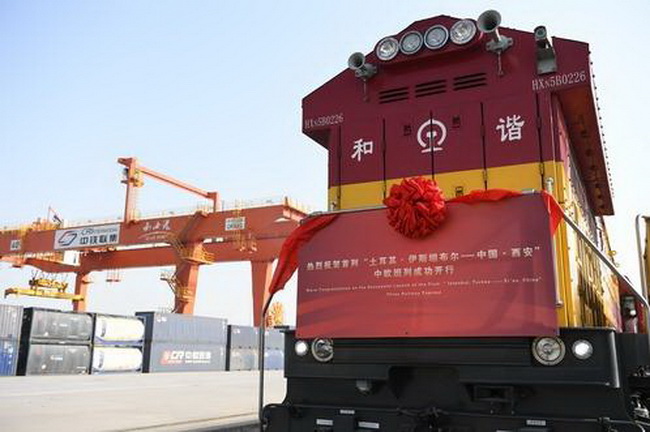Northwest China's Shaanxi unveils regulations to advance FTZ development

A congratulation ceremony is held for the successful launch of the first cargo train from Turkey to China in Xi'an, northwest China's Shaanxi Province, Dec. 23, 2020. (Xinhua/Li Yibo)
Authorities in northwest China's Shaanxi Province on April 5 unveiled specific regulations which will be formally implemented from May 1 to advance the China (Shaanxi) Pilot Free Trade Zone (Shaanxi FTZ) development, reported Shaanxi Daily Wednesday.
The regulations mainly cover the fields of management system, investment promotion and trade facilitation, financial services, Belt and Road (B&R) economic cooperation and cultural exchange, service and supervision, as well as law guarantee.
According to the regulations, Shaanxi FTZ is working toward the full implementation of the "pre-establishment national treatment plus negative list" management system for foreign investment.
Investment areas are not listed on the negative lists will be treated in accordance with the principle of consistency between domestic and foreign investment.
Meanwhile, facilitation will be offered for cross-border e-commerce enterprises and platforms in customs clearance, taxation and payment.
Noting the regulations on financial services, Shaanxi FTZ vows to promote the RMB as the main currency for pricing and settlement of cross-border trade and investment in the FTZ and the B&R countries.
Financial institutions and enterprises in the FTZ will be encouraged to issue RMB bonds overseas, establish futures trading markets, and conduct futures trading of agricultural and energy products, said the regulations.
To strengthen the B&R economic cooperation and cultural exchanges, the FTZ vows to launch more international passenger and freight air routes.
Priorities will also be given to enhance services and supervision, the regulations said, adding that the FTZ will promote digital government affairs, and attract talents through issuing preferential policies in various areas.


